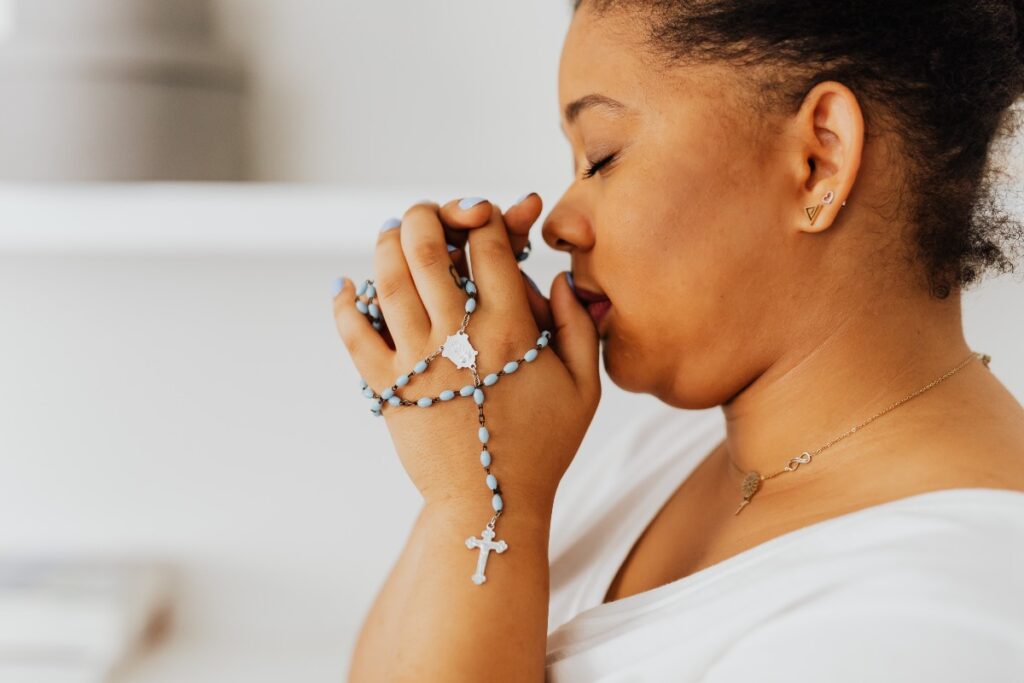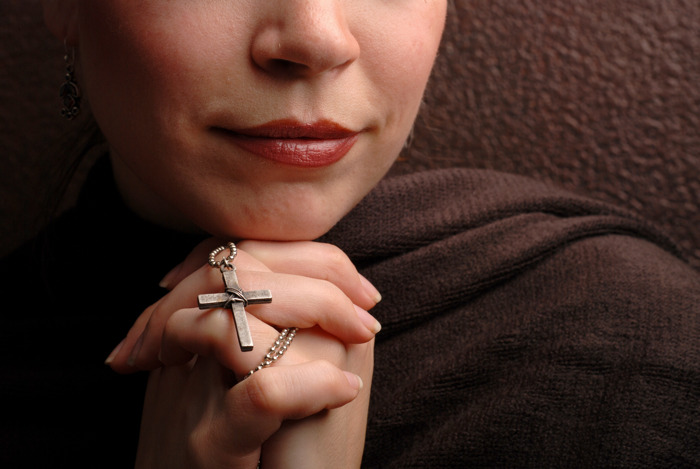Spiritual OCD is a specific type of OCD that revolves around a person’s religious beliefs. People with spiritual OCD may experience anxiety and fear related to their faith, which can affect their everyday lives. In this blog post, we will explore what spiritual OCD is and some of the symptoms you may experience. We will also provide tips on how to deal with this type of OCD and help you find relief.
Contents
Spiritual OCD: What it is?

Spiritual OCD refers to a type of OCD in which individuals feel the need to maintain strict religious or spiritual practices. This can include rituals, prohibitions, and positive thinking. Spiritual obsessions can be quite complex and time-consuming. They often involve repeated thoughts or images about religion or spirituality and may require extensive effort to avoid.
Spiritual OCD is not limited to any one religion or belief system. Anyone who feels the need to adhere closely to their faith or follow specific rituals could experience spiritual OCD. Some common manifestations of spiritual OCD include:
- Compulsively praying or reading religious texts
- Avoiding anything that might be considered associated with your faith (including pictures, symbols, etc.)
- Obsessing over the correct way to pray or meditate
- Feeling extremely guilty if you break any of your religious rules
- Believing that your prayers are not being answered correctly because you are not devout enough
Symptoms of Spiritual OCD

There are a few key symptoms of spiritual OCD that individuals with this disorder typically experience. These include:
One of the most common symptoms of spiritual OCD is an influx of obsessive thoughts. These thoughts can range from religious doubts and theological questions to superstitious beliefs or fears that the person may have done something wrong and will be punished by a higher power.
- Compulsive Behaviors
Another symptom of spiritual OCD is compulsive behaviors, such as repeating prayers or rituals, checking to make sure religious beliefs are being properly followed, or repeatedly asking for reassurance from others that a certain belief is true.
- Avoidance
When living with spiritual OCD, some people will attempt to avoid things they believe could lead to their fears coming true. This could include avoiding places of worship, refusing to talk about religious topics, or avoiding reading certain books.
- Intrusive Thoughts and Images
Individuals with spiritual OCD may experience intrusive thoughts or images of themselves performing sinful acts. These thoughts can be extremely distressing because they contradict the person’s religious beliefs.
- Feelings of Anxiety and Guilt
Spiritual OCD can also cause individuals to feel anxious and guilty about their thoughts, even if they don’t act on them. They may worry that these thoughts make them a “bad person” or pessimistic about their spiritual beliefs.
What Leads To Spiritual OCD?

There are many potential triggers for spiritual OCD, but some of the most common include:
- Fear or anxiety of going to hell or being judged
Sometimes, individuals develop spiritual OCD due to a fear of going to hell or being judged for their sins. This can cause intrusive thoughts and lead to compulsive behaviors in an attempt to appease the higher power they believe may be judging them.
- Difficult life events
Certain life events, such as bereavement, divorce, or job loss, can lead to individuals developing spiritual OCD due to the uncertainty and lack of control that these events bring.
- Obsessing over one’s faith
In some cases, individuals may begin to obsess over their own religious beliefs or practices because they are afraid of going against what is written in their holy book. This can lead to intrusive thoughts and an increase in compulsive behaviors.
- Past Trauma
Past traumatic experiences can also be a trigger for spiritual OCD, as individuals may experience intrusive thoughts or fears that the traumatic event was related to their religious beliefs or punishment from a higher power.
- Fearing to sin or becoming evil
It is not uncommon for some individuals with spiritual OCD to fear that they will sin or become evil if they do not adhere to their religious beliefs. This can lead to compulsive behaviors such as praying excessively, confessing sins, or constantly seeking reassurance from others.
How Does It Impact If Left Untreated?
The impacts of spiritual OCD can be severe if it is left untreated. Some of the most common effects include the following:
Distress and discomfort
Individuals who live with spiritual OCD often feel extreme distress and discomfort due to their intrusive thoughts and constant worrying about religious matters. This distress can lead to physical symptoms such as headaches, stomach aches, or insomnia.
If left untreated, spiritual OCD can lead to feelings of depression and anxiety. This can cause individuals to struggle with their day-to-day activities or withdraw from social situations.
Social isolation
Those living with spiritual OCD may begin to isolate themselves in an attempt to avoid triggers or intrusive thoughts. This can cause further distress and make it difficult to build meaningful relationships with others.
Lack of faith
Individuals living with spiritual OCD may begin to doubt their own beliefs, leading them to feel a lack of faith in themselves or higher powers. This can lead to feelings of guilt or shame and an overall decrease in quality of life.
How Can It Be Treated?

There is no specific treatment for spiritual OCD, as the focus of this type of OCD typically lies within the individual’s own religious or spiritual beliefs. Some people with spiritual OCD may seek out counseling or therapy to address their concerns and explore alternative ways of coping with these thoughts.
Cognitive Behavioral Therapy (CBT)
This type of therapy can help individuals recognize the patterns of their intrusive thoughts and develop strategies to cope with them. Through CBT, individuals can learn to challenge their beliefs and fears to gain a better understanding of the source of their anxiety.
Acceptance and Commitment Therapy (ACT)
This type of therapy focuses on helping individuals accept and make sense of their intrusive thoughts without allowing them to control their behavior or emotions. Through ACT, individuals can learn to observe their thoughts without engaging in the compulsive behaviors that often accompany them.
Meditation and Relaxation techniques
Meditation and relaxation techniques can be used to help individuals reduce their anxiety levels and manage intrusive thoughts. These practices can also help individuals gain a better understanding of their own spiritual beliefs and feelings.
Lifestyle Changes
Another way to combat spiritual OCD is by making lifestyle changes. This can include establishing a healthy routine, engaging in physical activity, and getting enough sleep each night. These changes can help individuals feel more grounded and reduce their anxiety levels.
Support Groups
An individual with spiritual OCD may also benefit from joining a support group. In these groups, individuals can share their experiences and feelings with others who are in similar situations. This can help provide a sense of understanding and comfort as well as the opportunity to learn new techniques for managing intrusive thoughts.
Medications
An individual may also choose to seek out medications to help manage their symptoms. While there is no specific medication for spiritual OCD, antidepressants or antipsychotics can be used to reduce anxiety and improve mood.
Types of medications that can be used to treat spiritual OCD include serotonin-reuptake inhibitors (SSRIs), tricyclic antidepressants (TCAs), and antipsychotic medications. It is important to speak with a doctor before taking any medication, as these drugs can have serious side effects.
Conclusion
Spiritual OCD is a type of OCD that revolves around a person’s religious or spiritual beliefs. This type of OCD can be very challenging to deal with, as it tends to interfere with people’s ability to participate in their normal activities and routines. Although this type of OCD does not have the same severity as other types of OCD, it can be equally debilitating for those who suffer from it. If you are experiencing symptoms associated with spiritual OCD, please do not hesitate to reach out for help. There are many resources available to help you like MantraCare.
For more information and guidance, please contact MantraCare. OCD is a mental health disorder characterized by obsessions and compulsions. If you have any queries regarding Online OCD Counseling experienced therapists at MantraCare can help: Book a trial OCD therapy session.


